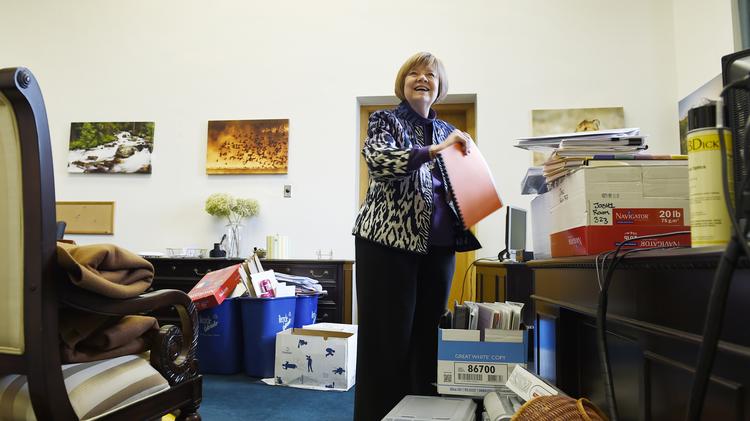A desire to fix roads and fund schools led at least two House Republicans on Thursday to join Democrats to give preliminary approval to a bill that frees up about $700 million in state revenue for those purposes.
The legislation would re-categorize revenue collected under the seven-year-old hospital provider fee, which now goes into the state’s general fund and is subject to spending caps imposed by the Taxpayer’s Bill of Rights.
Colorado House Minority Leader Brian DelGrosso and House Speaker Dickey Lee Hullinghorst debate the hospital-provider fee bill.
Most Republicans question the constitutionality of changing how the hospital provider fee revenue is accounted for, calling it a “magic trick.” The fee program collects money from the hospitals for each patient they treat and leverages the money to bring in the same amount of federal funds.
GOP members argue that the maneuver alsol would cost Coloradans the chance to get Taxpayer’s Bill of Rights refunds for many years.
But House Speaker Dickey Lee Hullinghorst — the Boulder County Democrat who sponsored both the hospital provider fee bill originally said the legislation allocates money that doesn’t come in through tax collections and puts it toward transportation, higher education, K-12 schools and other priorities.
A coalition of more than 100 business and civic groups back the measure. Hullinghorst argued that money that will be put toward these needs will improve the state economy much more than sending small refunds back to residents.
“I believe this bill is the most important we will consider this session for one single reason — its adoption ultimately would touch the lives of every single Coloradan,” Hullinghorst told the House during a roughly 3-1/2-hour debate. Continue reading






